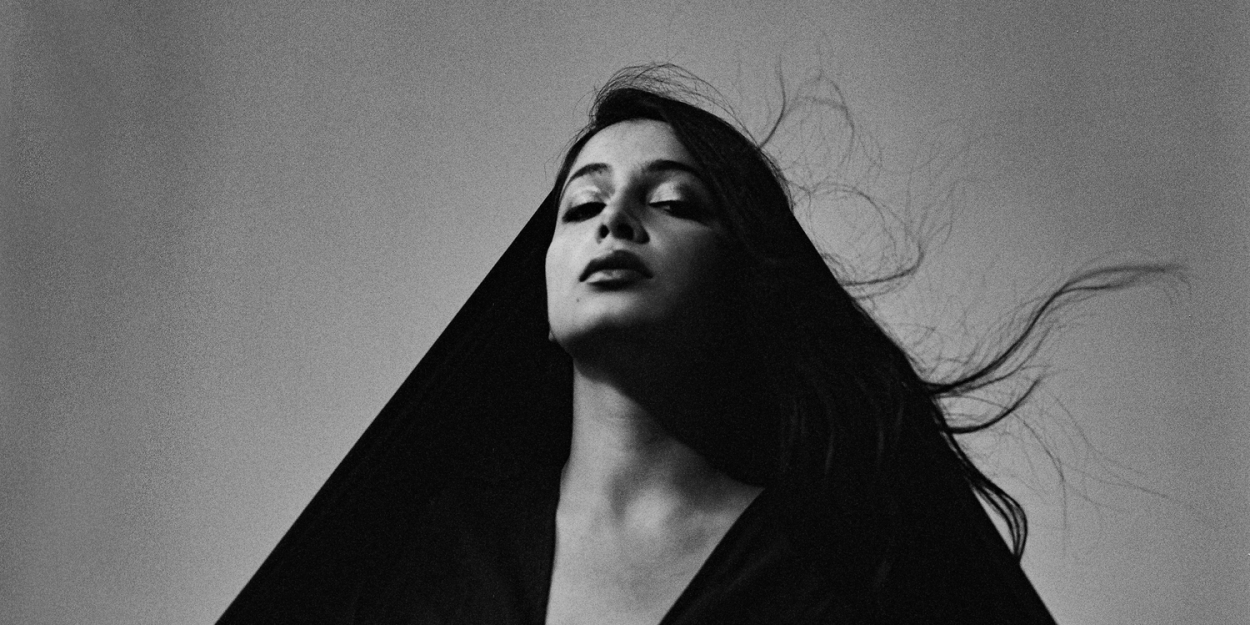ਆਦਤ / THE ĀDAT Comes to the United Solo Festival
The performance is on April 1st, 2025.

American performer-composer, Sheherazaad, whose contemporary folk-pop synthesis joins the new wave of South Asian diasporic soundscapes, will present a showcase production of her latest project, ਆਦਤ / the Ādat at Theatre Row, on April 1st, 2025, in the United Solo Festival.
Inspired by true events, ਆਦਤ / the Ādat (the habit) is the story of a young woman's life-altering catfishing compulsion, set against the backdrop of Sikh - American life in the Bay Area during early social media. The Ādat delves into third culture identity flux & “motherland” nostalgia, where the internet becomes a fast means towards self - reinvention, and the possibility of reclaiming one's roots. In an age where hybrid selves can multiply and refract across platforms, The Ādat asks, what all do we consent to, in an online dystopia?
Drawing on traditional giddha dance - theater, and presented in a one-woman format, this new - age, goth musical explores themes of diasporic religiosity, addiction, and romantic projection, with original book and score in both English & Punjabi folk, by contemporary composer and performer Sheherazaad. Joining her onstage will be tabla player Roshni Samlal (aka DJ Raat Ki Rani), pianist Utsav Lal, and South Asian fusion musician Sonny Singh.
As a vocalist and sonic storyteller, Sheherazaad has toured across the US, India, and Europe and her work has been featured in Rolling Stone, Pitchfork, The New York Times, and Vogue. Born to what she describes as a “fanatically art-centered, Asian-American household”, Sheher began her ear training at home, with both her parents being band musicians and her grandmother a trailblazing Indian classical concert producer. At home, she absorbed the life portfolios of Lata Mangeshkar and RD Burman, while beginning formal voice education in jazz and American Songbook from the age of six.
After years of singing competitions and performances of Western repertoire, Sheherazaad “stopped singing completely,” citing her “disenchantment with English as an emotive language” after encountering British colonial history. But she also felt a visceral disorientation resulting from long stays in India, where her mixed North and South Indian heritage further complicated and left a deep imprint on her hyphenated young psyche, and speaking accent.
Instead, she turned to experimental theatre spaces and Bollywood dance as a means to express her evolving positionality. Moving to New York for university, she quickly discovered a more radical South Asian arts community. Sheher began following the likes of the Swet Shop Boys, studying the UK's historic Asian electronic counterculture, and eventually crossing paths with experimental Pakistani artist Arooj Aftab. “I felt determined to resurrect and recalibrate my singing voice”, she says, “to participate in this new wave I saw of diasporic music innovation and its links with political liberation.”
Relocating to California then, for vocal rehabilitation, Sheherazaad found her Northern Star in the Hindustani classical guru Madhuvanti Bhide, who helped Sheher reshape her old voice, using “gharana” methodology. In a further attempt to re-access lost heritage, Sheher also studied Arabic, Hindi, and Urdu, where she quickly advanced and wrote test lyrics. These would result in her self-released 2020 underground project Khwaabistan, and garner the attention of Aftab, who offered to produce Sheher's next record, Qasr, which has since been featured as a 2024 song of the year (@thefader) and was presented at Le Guess Who? Festival in Utrecht and Pitchfork Music Festival in London.
Comments
Videos

